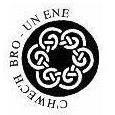 |
Congrès
Celtique International
|
International
Celtic Congress
|
Kendalc'h
Keltiek Etrevroadel
|
 |
|
| Le congrès de juillet 2012 à Guingamp | Les congrès en Bretagne | Les congrès de 1972 à 2011 | Historique de l'association |
Excerpts from a lecture by Mikael BAUDU, given in Camarthen on July 2002 You may wonder why I chose to start this lecture with a video clip of a Breton song showing American troops in Somalia. This song "Gortoz a ran... "was on the original sound track of Black Hawk Down, Ridley Scott 's last film. It is surely unusual to see Hollywood and the Director of Blade Runner, Alien, or the Gladiator, bringing the Breton language into most of the cinemas all over the planet. To tell the truth, however, I must admit that very few people realised that they were listening to a song in Breton, and I am not sure that even in Brittany the majority of the people who went to see the film realised that the credits of the film were also shown while a song in Breton was playing in the background. /p This is to illustrate a paradox.. The more the language is talked about, the less it is spoken. In Brittany the feeling of belonging to a shared and distinctive culture has been very strong in the last few years. The Breton people feel very confident in their future, a recent poll, two years ago showed that 78% of the Breton people felt confident in the future of Brittany, but only 62% of them felt the same confidence in the future of France. There has been an extraordinary revival in Breton music: record stores are full of CDs. They are being sold in Brittany, but also beyond its borders, in France, Germany, and Spain. The Breton singers are exploring new musical fields assimilating influences ranging from techno, jazz or world music, and mixing their heritage with traditional music from Eastern Europe or Northern Africa. Breton singers and musicians bring in thousands of people to their concerts. The Interceltic Festival in Lorient is about to bring in again crowds totalling 400,000 .people in a few days. These audiences are usually very young, but the paradox is that they rarely understand the language. The Breton language has never been so popular, but it has never been spoken by so few people. Nevertheless the number of bilingual classes in schools is growing each year at a rate of 15 %. But ninety percent of these pupils come from families where their parents can not speak the language, as Breton hadn't been taught to them by their own parents. The traditional speakers are getting older 65% of them are over 65 according to a poll carried out five years ago. But at the same time 90% of the Breton people considered that the language should be preserved and 75% of them felt confident in its future. The social demand to preserve the language comes from a large range of the population and like it or like it not the authorities have to face this fact. For most people however the language issue is not as much of a priority as environmental issues or unemployment for example. Until recently there was no such a thing as language planning in Brittany. The state is still very reluctant to create such a policy. The Regional Council started it last year with a plan for the next 5 years but its objectives are not very ambitious. The future of the language does not lie in the hands of its speakers only, but in the hands of the whole Breton population. Reviving the language means money, and the question is are we ready to convince our politicians that we want to pay the price. (Le texte complet du colloque peut être obtenu auprès de) - (the whole text may be asked from) : Celtic Congress, Arwel, 8 maes y Drindod, Aberystwyth, Ceredigion SY23 1LT CYMRU-WALES |